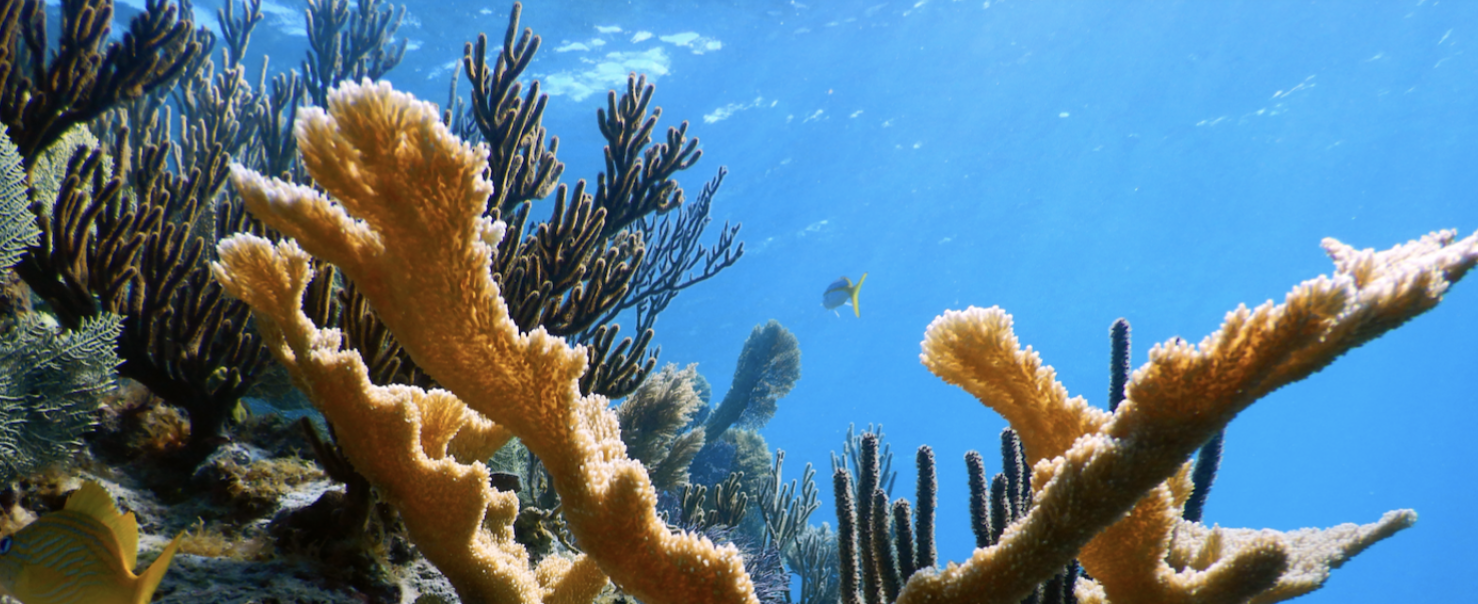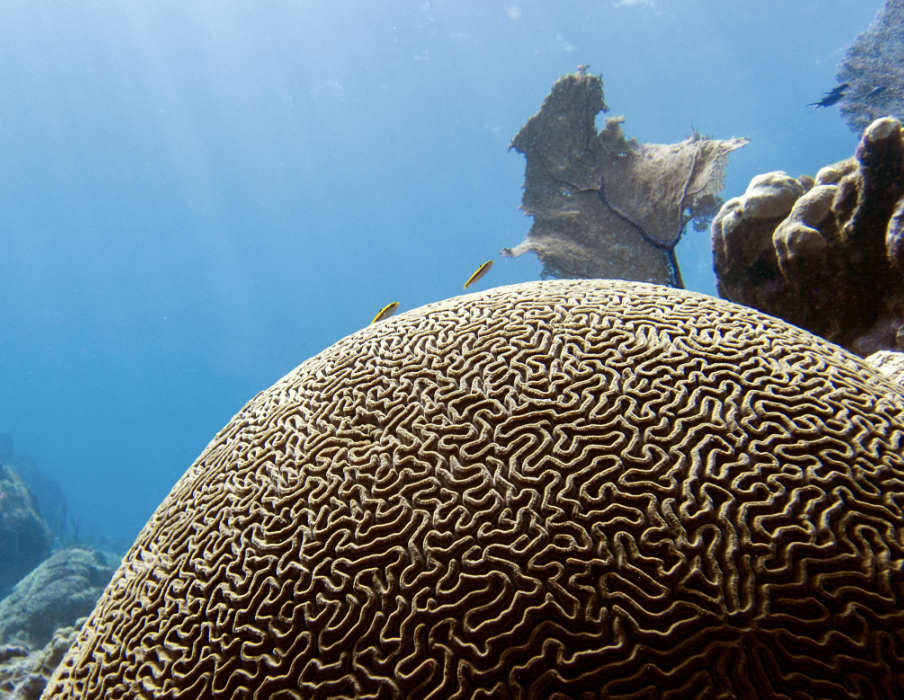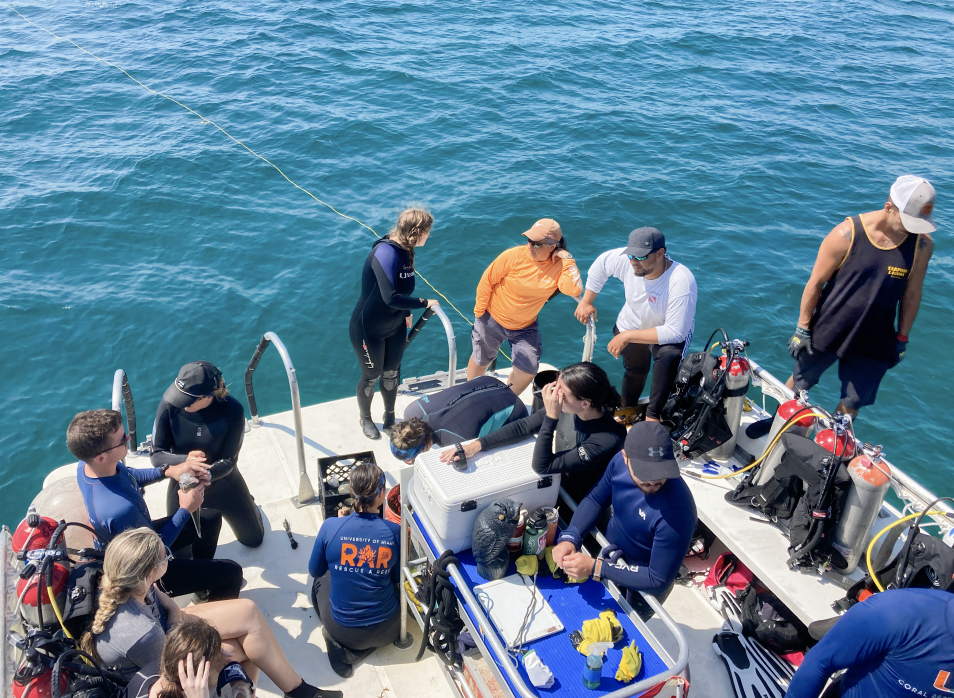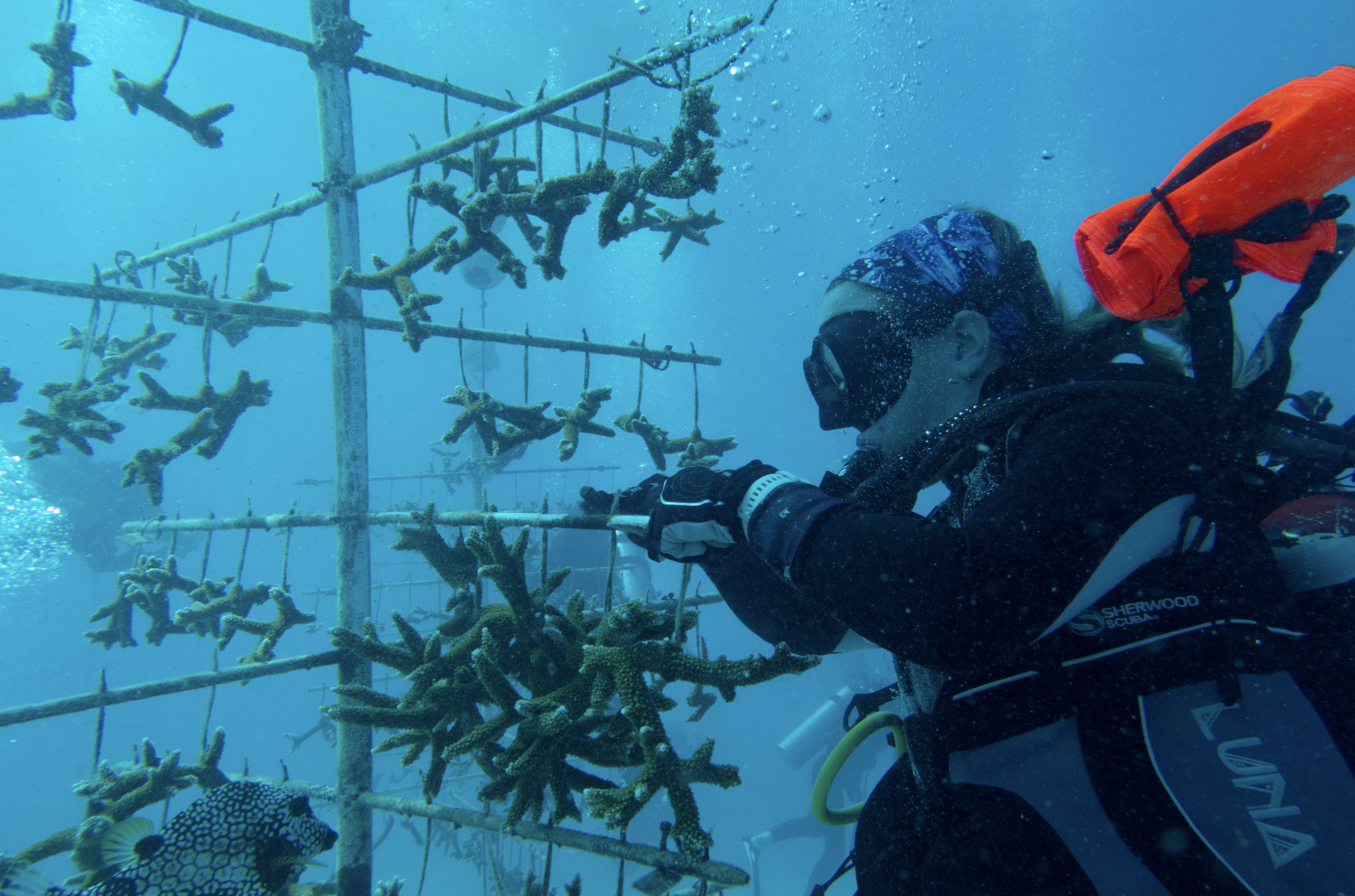The magic, allure, and prosperity of South Florida is intrinsically tied to coral reefs and the ecological, economic, and societal services they provide. Billions of dollars in food, jobs, recreational opportunities, coastal protection, and other important goods stem from coral reef ecosystems.
However, coral reef populations have experienced significant declines over past decades, to the point where several reef-building species in the Caribbean are now listed as threatened. These declines have been driven by both local (i.e., pollution, overfishing) and global stressors (i.e., increasing ocean temperatures, acidification).
Because of this, coral gardening and active reef restoration has expanded exponentially to help recover degraded coral populations and the ecological services associated with healthy and complex reefs.
Our UM Coral Restoration Lab, directed by Dr. Diego Lirman, uses strong, science-based techiques to conduct active coral propagation and reef restoration in Florida and the Caribbean for >15 years. The focus of our activities is to propagate stocks of threatened corals like Acropora cervicornis, A. palmata, and Orbicella faveolata within in-water and land-based nurseries for use in research and restoration.







